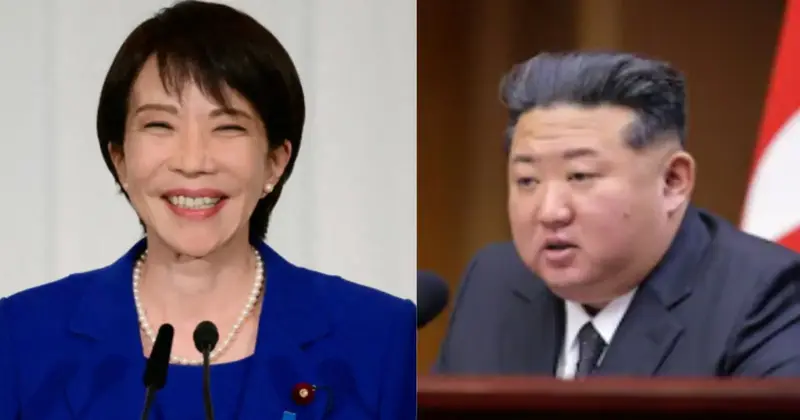Will Japan’s new Prime Minister Sanae Takaichi be able to meet North Korean leader Kim Jong Un and secure the return of the Japanese citizens allegedly abducted by North Korean agents in the late 1970s and 1980s? One finds the prospects thereof are bleak.
Observers say Prime Minister Takaichi has been indeed serious about resolving the issue of the abductees. She has met the abductees’ families twice since taking office. Once she met them with US President Donald J. Trump during the latter’s recent visit to Japan.
Reports are that the other day(November 3), Sanae Takaichi met the members of the Association of Families of Victims Kidnapped by North Korea(AFVKN) and the National Association for the Rescue of Japanese Kidnapped by North Korea(NARKN)). She assured them of all her best efforts in bringing back the abductess. Following this, Premier Takaichi has even conveyed her intention to hold a summit meeting with the North Korean dictator Kim Jong-un.
Earlier, on the sidelines of the Association of Southeast Asian Nations summit(ASEAN) in Kuala Lumpur, Malaysia and the Asia-Pacific Economic Cooperation(APEC) meet in South Korea, Prime Minister Takaichi sought cooperation from the leaders of various countries on the issue. Pertinently, the Takaichi administration already has the support of Washington in this regard.
There are, however, too many impediments on the way to the resolution of the abductees issue. Tokyo and Pyongyang have had no formal diplomatic relations. So far, Takaichi’s proposal has not received any response from Pyongyang. Indications of any response is highly unlikely. In March last year, North Korean dictator Kim’s powerful sister Kim Yo Jong already declared there would be no contact with Japan.
Besides, the governments of Japan and North Korea have had divergent narratives on the issue of the abductees. Tokyo has officially listed 17 people as abducted by North Korea. It has suspected Pyongyang’s involvement in many other such cases as well. Pyongyang maintains that the issue has already been resolved. In 2002 and 2004, then Japanese Prime Minister Junichiro Koizumi visited Pyongyang. During his visit, then North Korean dictator Kim Jong Il apologized for this tragedy and promised it would not happen again. It led to the return of five detainees to Japan.
The observers further add that former Japanese Prime Ministers Shinzo Abe and Fumio Kishida wanted to meet Kim Jong Un and resolve the issue of the abductees. However, they failed. Premier Takaichi, too, might not succeed in her mission. She could turn to US President Trump and Prime Minister Narendra Modi for the help.
Pyongyang has tolerably fine relations with Washington and New Delhi. Of course, North Korea does not have a formal diplomatic relationship with the US. But the two nations use indirect channels, such as North Korea’s UN mission and the Swedish embassy in Pyongyang, for contact. Kim and Trump were able to meet each other three times during the latter’s first term in the White House.
As far as New Delhi relations with Pyongyang is concerned, they have been rooted in India’s commitment to the United Nations’ core principles of self- determination, world peace and disarmament. India has consistently supported the successive UN resolutions on the Korean peninsula and the right to self-determination for the entire region. It continues to have diplomatic relations with both the Koreas.
